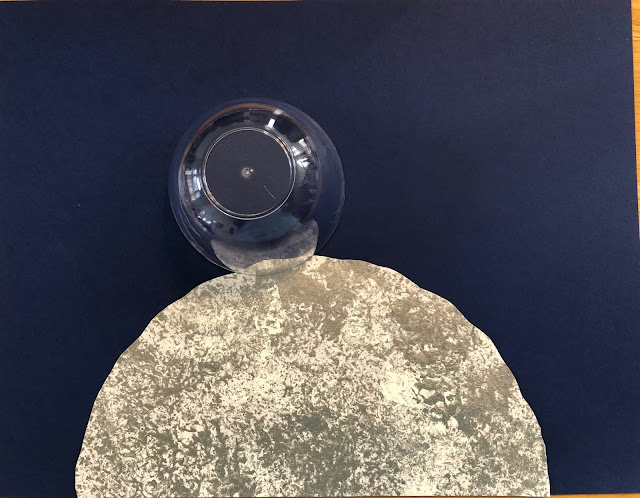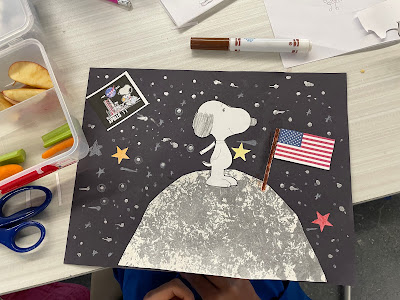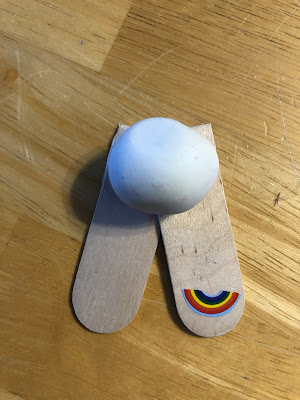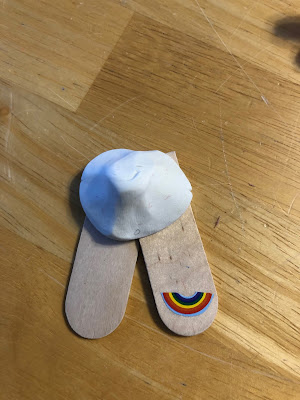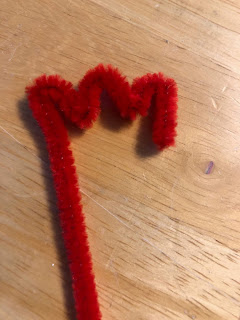A fun project that focuses on cool colors and watercolor techniques.
You could also use oil pastels or chalk pastels without the glue.
You can use black glue for a more dimensional look, or outline with Sharpies. Black Glue makes it easier for your students to keep the colors within the areas and it looks like stained glass when finished.
You'll need:
Watercolor paper
Black Glue - regular white glue with black acrylic paint mixed into it.
Pencils
Brushes
Water
Paper towels
Watercolor paints, I use liquid watercolor
This polar bear is easy to draw -
I start out with the head in the center of the paper - and make it about 2" tall.
I draw a line for the top of the head and a dot straight down from the middle of that line.
Then I join the edges of the lines to the dot with a slightly curved line.
This creates a curved upside down triangle. I like to talk about how drawing is basically just combining shapes.
Add another curved line for the nose, curved lines for the ears and 2 ovals for the eyes.
Now two more curved lines from the tip of the nose for the bear's chest.
Two lines from about the center of the face to a little below the middle lines.
Add the bumps at the bottom of those lines for the paws and connect them to the outside lines.
Now add the back legs and paws with another curved line and a bump on the bottom.
I punched a 1 1/2" circle out of card stock as a pattern for the moon.
I then add some horizontal lines for the sky and mountains etc... and tell them to do the same in whatever shape they choose.
Have your students put the glue on the bear first so they can keep their hands out of the glue when applying the glue. I have them practice with the glue before applying it to the bear just to get a feel for it. It's easier to pull the glue towards them that to try and push it away from them.
Then go from top to bottom.
I have them stop here and let it dry overnight, then they add the claws and eyes with a sharpie and erase any extra pencil lines.
With a palette of blue, purple, magenta etc.. we start painting now that the glue is dry.
I show them how to do the graduated wash by starting with just clean water on their brush and painting the chest of the bear. Then with just a bit of blue on the tip of their brush the go around the edges of the glue lines and let the color disperse in the water on the paper. If they accidentally get too much blue they can blot their middle section with a tissue or towel.
The moon is the same technique.
Now they can do washes of color in each section of their painting.
I demonstrated using undiluted color at the top of the area they're painting and then adding water to make it lighter going towards the bottom. I like having a variation of shades in the washes of color, but I also tell them they can do it however they want.
Examples from a camp with 1st grade and up.
This is a challenging project, mostly because the glue is difficult to control, but when they get to the painting it is easy because the glue stops the colors from going where they don't want it.
















